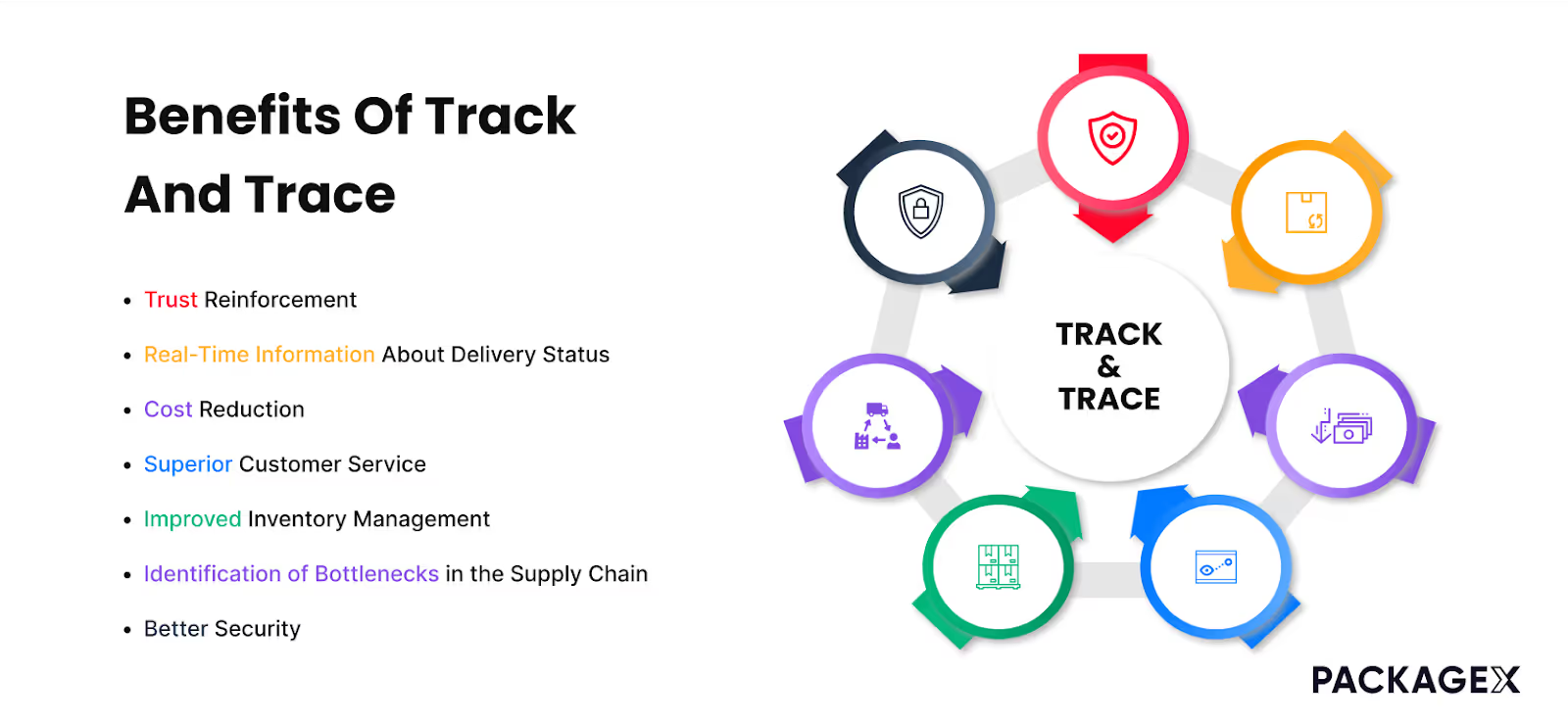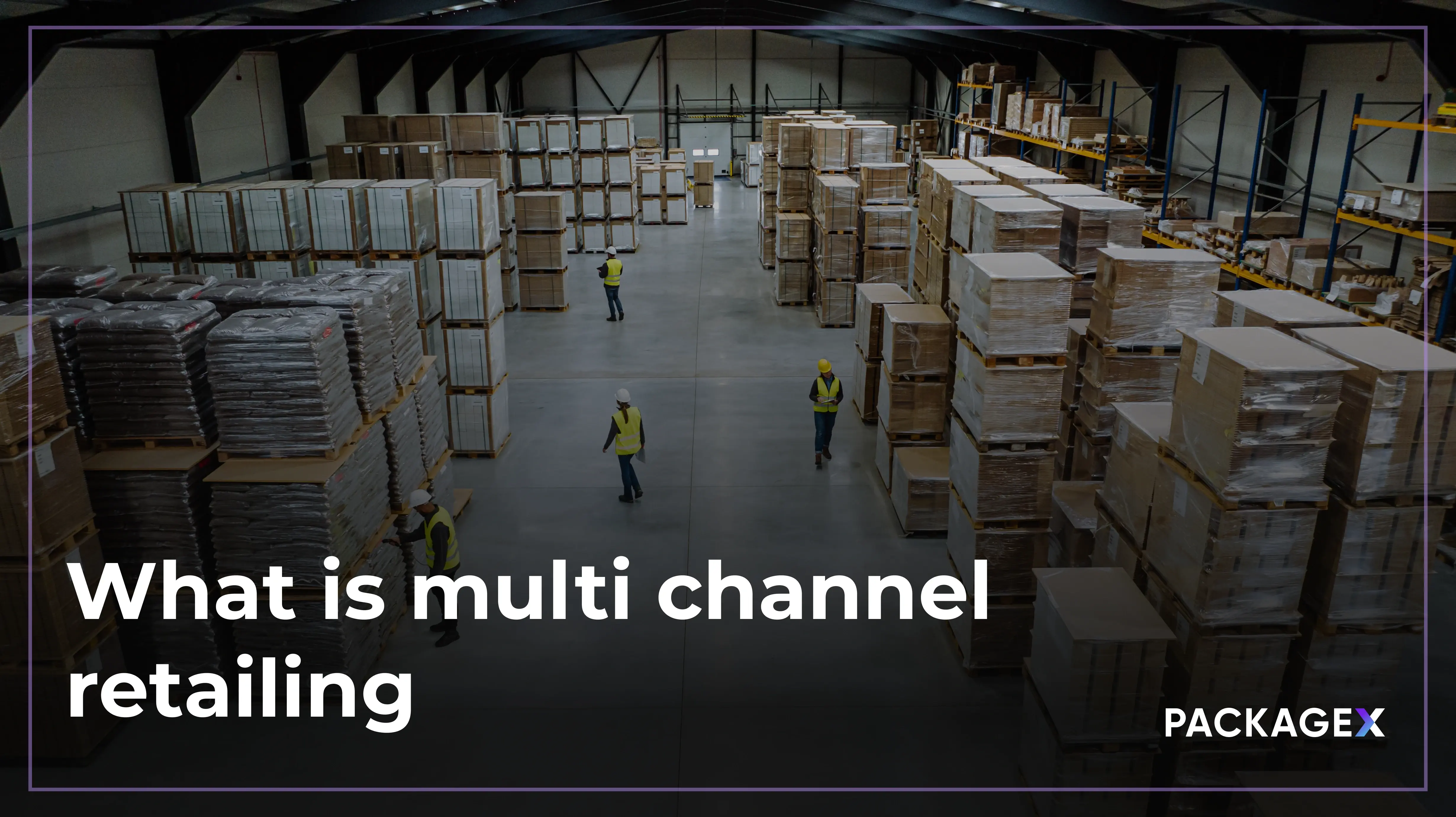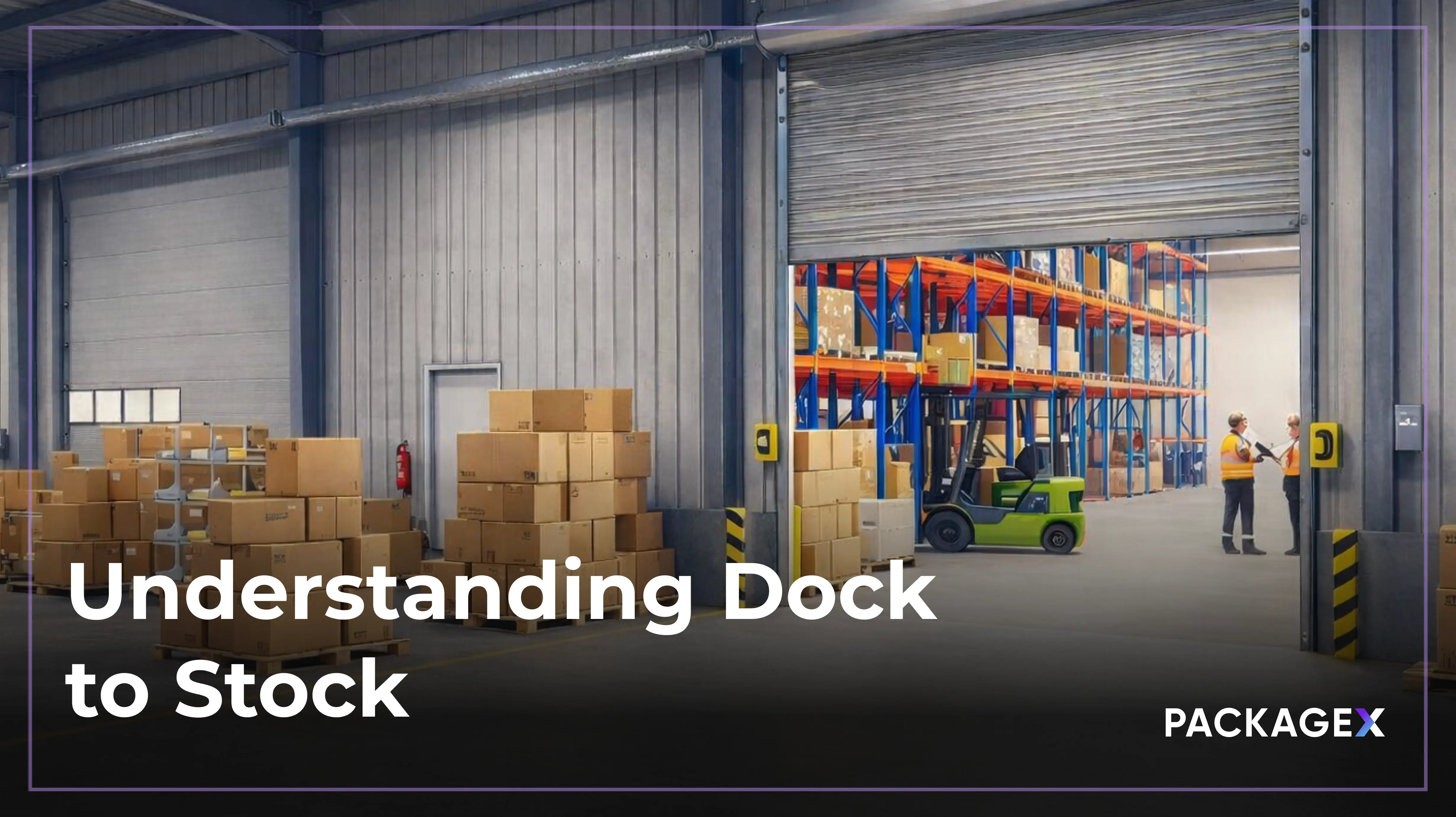Today's supply chain management and logistics are complex, increasing the demand for real-time visibility and continuous monitoring of shipment chains. Goods-centric tracking and tracing of items is needed to increase visibility and control in various logistics operations of a business or company.
It is critical for a supply chain manager to know about the shipment's location, the estimated time of arrival (ETA), and any possible disruption or current and past status of the shipment to manage and control their fleet, orders, and goods.
According to a recent study by MDPI, lack of visibility across the extended supply chain is one of the biggest challenges for companies. Therefore, track and trace in logistics are essential to increase transparency across every step of the supply chain. The current technological advancements have enabled manufacturing sites, e-commerce businesses, and warehouses to track and trace shipments over their entire life cycle.
This blog will shed light on the concept of tracking and tracing in logistics and explore its benefits in detail.
What Is Track and Trace?
Track and trace are two fundamental components of the supply chain that allow various logistics providers and companies to determine the location and status of the goods.
Track refers to the process of following the trail produced by the shipment's movement. On the other hand, Trace involves tracking the package movement and even the package's temperature. In simple words, track and trace is a way to record the movement of parcels during transportation.
What Is the Aim of Track and Trace in Logistics?
Track and trace aim to create transparency in the supply chain so that logistics providers, partners, and customers can know about the shipping status and exact location of goods.
Moreover, it also improves the management of the logistics network and the quality of the customer service.
Tracking and tracing help improve the following processes:
- Inbound transportation
- Outbound transportation
- Fleet management
- Materials handling
- Warehousing and distribution
- Order fulfillment
- Demand planning
- Inventory management
Key Technologies Used in Track and Trace
Modern track and trace systems rely on several technologies to keep shipments visible throughout the supply chain.
- GPS (Global Positioning System):
Provides accurate, real-time location data for vehicles, containers, and cargo in transit.
- RFID (Radio-Frequency Identification):
Uses radio signals to identify and track products or pallets tagged with RFID chips, reducing manual errors.
- Barcode Scanning:
Barcode scanners captures shipment details at checkpoints, making it easier to confirm movement and update logistics records instantly.
- Digital IT Systems:
Advanced platforms process this data, integrate with supply chain software, and give logistics managers actionable insights.
Together, these technologies improve shipment tracking, enhance supply chain visibility, and support efficient logistics operations.
Benefits of Track and Trace Technology
Visibility in supply chain operations is essential to improve logistics workflows, save time on manual tasks, increase profits, and reduce production waste.
Some of the significant benefits of track and trace in logistics include the following:
- Trust reinforcement
- Cost reduction
- Superior customer service
- Improved inventory management
- Better security
- Identification of bottlenecks in the supply chain
- Real-time information about the delivery status
Trust Reinforcement
The most important rule of a business is to enforce trust within your partners and customers. The same is the case in the logistics business. You need to reinforce trust by promoting transparency within your supply chain through tracking and tracing.
Tracking and tracing in logistics offers you peace of mind and keeps your partners and customers informed about the status of their shipments. Also, it builds trust between the supplier and the purchaser.
Cost Reduction
The advanced track and trace technology also help minimize the cost associated with the transportation of the consignment. You can effectively mitigate the traveling and transportation costs by finding quicker routes using GPS-based applications. These applications utilize intelligent routing and create efficient work routes, which reduces fuel costs.
Superior Customer Service
Another significant advantage of track and trace in logistics is superior customer service. It helps you achieve better efficiency and quick delivery, improving customer service. Your customers will be able to track shipments easily, and you will have all the information and precise delivery schedules.
Improved Inventory Management
Staying informed about your inventory levels throughout the supply chain strengthens your inventory management and planning.
With the help of track and trace, you can improve your inventory management and reduce the time it takes to locate goods and perform manual inventory checks. In this way, your employees can perform other essential tasks.
Better Security
In logistics and distribution, a lot of things are at stake. When a shipment gets misplaced, it is not just a material loss on the client's radar but also a loss of reputation for you. Track and trace technology provides better security for your shipments, captures every minute detail, and sends out instant notifications about the shipment status through text or email.
Identification of Bottlenecks in the Supply Chain
Track and trace in logistics also help you identify bottlenecks in the supply chain operations. Utilizing an advanced track and traces solution allows you to understand where things are consuming too much time. For instance, you can change the route if a shipment tends to be in transit for a longer time on a specific route.
Similarly, if a particular logistics center takes hours to process your shipment, you can communicate and figure out how to make things easier and quicker.
Real-Time Information About Delivery Status
Inefficient deliveries lead to a lack of transparency in the supply chain. It becomes difficult for the logistics managers to determine the location and status of transported shipments and goods. As a result, they get deprived of real-time information about the goods, such as:
- The current location of the order
- The estimated time of delivery
- Are goods kept at an accurate temperature?
- Are goods delivered to the customer without any damage?
- Has the shipment been received successfully?
- Are there any missing deliveries?
- Is the shipment delayed?
With the help of track and trace in logistics, managers can keep track of the shipments at any time because they get all the real-time information. They can timely detect whether the shipment is being misplaced, damaged, or delayed. Consequently, they can resolve all the problems proactively, ensuring zero disruptions in the supply chain.

What is the Future of Trace and Track in Logistics?
As per Markets and Markets, a research firm, the global market for track and trace technology is expected to reach approximately 12.27 billion USD by 2030 with a compound annual growth rate of 12%.
Although tracing and tracking is not a new concept in logistics, its usage is still limited, leading to a lack of visibility in the supply chain and real-time information.
However, as the demand for more information increases among retailers, manufacturers, logistics service providers, and customers, the more critical tracing and tracking become in logistics.
In the future, many other technologies like IoT and blockchain will be used to create a more comprehensive and optimized solution for tracking and tracing.
Why PackageX is an Ideal Choice for End-to-End Shipment Visibility?
In today’s logistics and supply chain industry, real-time visibility is a necessity. PackageX provides advanced track and trace solutions that give operators complete control over their shipments. From dispatch to last mile delivery. By capturing accurate data at every step, it helps businesses maintain supply chain transparency and respond quickly to potential disruptions.
With PackageX, logistics providers can:
- Track shipments in real time with accurate ETAs and automated notifications.
- Standardize processes across multiple warehouses, carriers, and regions.
- Improve accuracy with digitized documents and automated status updates.
- Strengthen security by detecting issues before they impact delivery.
These solutions allow global supply chain companies to enhance efficiency, safeguard freight, and deliver a reliable customer experience while reducing costs.
Conclusion
Track and trace in logistics have become a must have for all shippers and carriers. It has numerous benefits, including simplified finding, tracking, and data collection from every supply chain step.
Moreover, it helps businesses save cost and time, increase supply chain transparency, improve efficiency, and offer a superior customer experience. Therefore, you should consider deploying smart track and trace solutions, like the ones provided by the PackageX platform, to modernize and standardize your logistics operations.
FAQs
What is the purpose of the track and trace system?
The purpose of a track and trace system is to provide real-time visibility across the supply chain. It helps logistics operators monitor shipments, confirm accurate delivery times, and reduce risks. By improving transparency, businesses build trust with customers and partners.
What is track and trace in logistics?
Track and trace in logistics refers to the process of monitoring goods from origin to destination. It records shipment movement, delivery status, and key data points like location and condition. This improves supply chain efficiency and ensures customers receive reliable updates.
How does track and trace improve supply chain visibility?
Track and trace improves visibility by giving logistics providers continuous updates on shipment status. Operators can identify delays, detect risks, and adjust routes proactively. This level of control supports better planning, reduces costs, and enhances customer satisfaction.
Why is track and trace important for logistics companies?
For logistics companies, track and trace is critical to managing fleets, orders, and warehouses efficiently. It ensures accurate delivery schedules, prevents loss, and strengthens security. With digital tracking, companies can streamline operations and maintain a competitive edge.



.webp)
